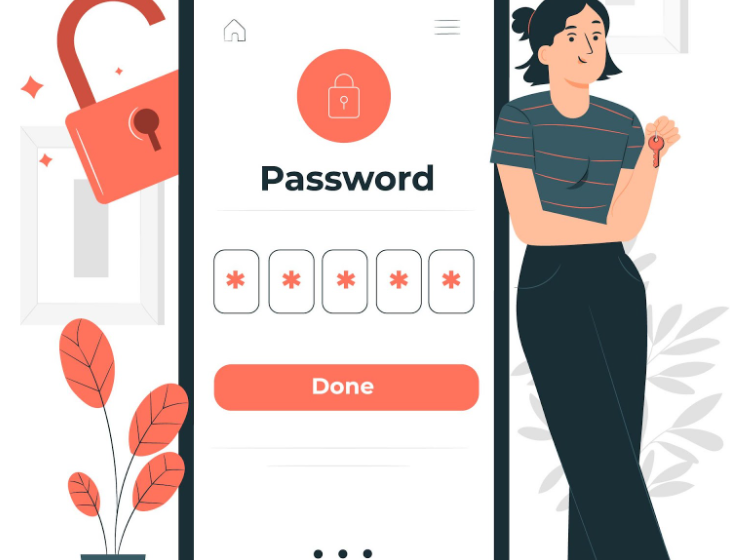Over the past decade, biometric technology has become a major player in digital security. From fingerprint scanners to facial recognition, and even voice and retina scans, we’re using our unique physical traits to unlock phones, access apps, and secure bank accounts. It’s fast, convenient, and often very secure.
But here’s the thing—even with these high-tech advancements, Personal Identification Numbers (PINs) haven’t disappeared. And they’re not likely to vanish anytime soon. Strong PINs remain a key layer of security in many systems. Curious why they still matter? Let’s explore how PINs complement biometrics and why using tools like a random PIN generator can enhance your digital security.
Biometric Technology Is Powerful, But Not Perfect
Biometric systems are undeniably advanced, but they’re not without flaws. Here are a few reasons biometrics aren’t foolproof:
- Hardware dependency: If your phone’s fingerprint sensor or facial recognition camera is damaged, you’re out of luck.
- Environmental factors: Wet fingers, poor lighting, or wearing a face mask can make biometric recognition fail.
- Data permanence: Unlike a PIN, you can’t change your biometrics. Once compromised, you can’t “reset” your fingerprint or face like you would a password.
Because of these issues, most secure systems still require a backup method of authentication—that’s where PINs step in.
PINs as a Backup Method
Even if you rely on biometrics most of the time, PINs are critical for when technology falters. Here are some ways they come into play:
- Unlocking your phone after a reboot usually requires a PIN.
- Accessing mobile banking on a new device often involves entering a PIN.
- Repeated biometric failures often trigger the need for a fallback PIN.
If your PIN is weak, you’re leaving a back door open to sensitive data and financial accounts. It’s why having a strong PIN is just as important as the biometrics you trust.
The Problem with Weak PINs
Too many people choose easy-to-guess PINs like “1234” or “0000.” Cybercriminals know this and exploit it using PIN-guessing algorithms or stolen data.
Take this for example: A study by DataGenetics found that around 20% of people use one of the top 10 most common PINs. That makes brute-force attacks alarmingly effective on accounts and systems that aren’t configured with extra security.
To protect your sensitive information, you need to go beyond predictable patterns. That’s where a random PIN generator becomes valuable.
Why Use a Random PIN Generator?
A random PIN generator creates secure, unpredictable numbers, helping you keep your accounts safe. Here’s why it’s better than picking one yourself:
- Eliminates patterns: Humans tend to pick numbers that carry personal meaning, like birthdays. Random generators avoid this.
- Customizable length: Need a 4-digit, 6-digit, or longer PIN? You can set the complexity you need.
- Saves time and effort: It removes the hassle of coming up with a PIN and the temptation to reuse old ones.
Using a random PIN generator for each new app, device, or account is a simple yet effective way to beef up your security.
Layered Security Is the Best Defense
When it comes to cybersecurity, one golden rule stands out: defense in depth. This means using multiple layers of protection instead of relying on just one. Combining biometrics and PINs is an example of this approach in action:
- Biometrics deliver speed and convenience.
- PINs add a second layer of verification, acting as a robust fallback.
Even in rare cases where someone might spoof your biometric data, a strong PIN would still stop them in their tracks. It’s this layered strategy that keeps your accounts safer.
Tips for Strengthening Your PIN Security
To make sure your PIN is up to the task, follow these simple best practices:
- Rely on a random PIN generator instead of picking numbers yourself.
- Avoid common combinations like “1111,” “1234,” or your birth year.
- Don’t reuse the same PIN across multiple accounts or devices.
- Replace old PINs periodically, especially if you suspect a breach.
- If needed, store your PIN securely in a trustworthy password manager.
Final Thoughts
It is easy to believe that personal identification numbers (PINs) are no longer relevant in light of the recent hype surrounding biometrics. What is the truth? Their worth is more than it has ever been. When biometric technologies fail, personal identification numbers (PINs) serve as a solid backup, improve two-factor security, and guarantee that your accounts will continue to be protected.
The most important thing is to make sure that your personal identification numbers (PINs) are both robust and unpredictable. By utilizing a random PIN generator, you are able to eliminate combinations that are simple to crack and instead generate individual, secure possibilities each and every time. When it comes to protecting your digital assets and privacy, this is a relatively minor action that can have a significant impact.



